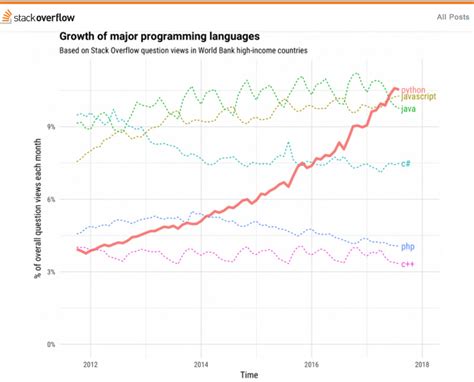您所在的位置:首页 - 科普 - 正文科普
英文变中文怎么变
![]() 一迎
2024-05-12
【科普】
628人已围观
一迎
2024-05-12
【科普】
628人已围观
摘要**Title:AComparativeAnalysis:EnglishProgrammingvs.ChineseProgramming**Intherealmofprogramming,langua
Language isn't just a tool for communication; it also reflects cultural values and norms. English programming languages often embody the principles of modularity, readability, and simplicity, influenced by Western programming paradigms and software engineering practices.
Ya Programming Language: https://en.***.org/wiki/Ya_(programming_language)
Chinese programming languages represent a trend towards localization and cultural sovereignty in technology. By embracing Chinese language and cultural norms, these languages aim to empower developers who may feel marginalized by the dominance of English in the tech industry. However, this localization could potentially limit the global reach and compatibility of Chineselanguage software.
Syntax and Structure:
On the other hand, Chinese programming languages, like CWU, CLE, and Ya, utilize Chinese characters for syntax and structure. This approach caters to developers who are more comfortable with Chinese and may find it easier to express concepts and variables in their native language. However, it can pose challenges for international collaboration and integration with existing Englishbased tools and libraries.
Recommendations for Developers:
In contrast, the Chinese programming community has been rapidly growing, with dedicated forums, social media groups, and developer communities emerging. This trend is fueled by the increasing demand for localized resources and the desire to foster innovation within China's tech ecosystem. However, language barriers may limit access to global best practices and hinder crosscultural collaboration.
1.
Language Proficiency:
Regardless of the programming language used, developers should prioritize proficiency in both English and Chinese to access a broader range of resources, collaborate effectively, and stay competitive in the global market.Localization in Software Engineering: https://dl.acm.org/doi/10.1109/ICSE.2012.6227147
Chinese programming languages may incorporate elements of traditional Chinese culture, such as emphasis on harmony, collective effort, and holistic thinking. This cultural context can manifest in coding conventions, design patterns, and community dynamics, shaping the way software is developed and maintained within Chinesespeaking communities.
3.
Adaptability:
Stay informed about developments in both English and Chinese programming ecosystems, and be prepared to adapt to evolving trends, technologies, and community dynamics.Cultural Considerations:
4.
Collaboration:
Foster crosscultural collaboration and knowledge exchange through participation in international conferences, opensource projects, and online communities that transcend linguistic and cultural boundaries.JavaScript Programming Language: https://developer.mozilla.org/enUS/docs/Web/JavaScript
2.
Diversity and Inclusion:
Embrace linguistic and cultural diversity within the programming community, recognizing the value of different perspectives, approaches, and contributions from developers worldwide.Community and Support:
References:
Western vs. Chinese Cultural Values in Software Development: https://ieeexplore.ieee.org/document/6639531
Python Programming Language: https://www.python.org/
In the realm of programming, language isn't just a means of communication; it shapes how developers approach problems, structure code, and collaborate with others. English and Chinese are two prominent languages used in programming, each with its own nuances and considerations. Let's delve into a comparative ***ysis of English programming and Chinese programming, exploring their similarities, differences, and the implications for developers.
Title: A Comparative ***ysis: English Programming vs. Chinese Programming
CWU Programming Language: https://en.***.org/wiki/CWU_(programming_language)
GitHub: https://github.com/
English programming languages, such as Python, JavaScript, and C, predominantly use English keywords, symbols, and conventions for syntax. This makes the code more accessible to a global audience, as English has become the lingua franca of programming. Additionally, Englishbased documentation, tutorials, and resources are abundant, facilitating learning and troubleshooting for developers worldwide.
English programming languages have enjoyed widespread adoption and globalization, driven by the dominance of English in academia, industry, and the internet. This universality promotes interoperability, knowledge sharing, and career mobility for developers across borders.

In conclusion, English programming and Chinese programming represent two distinct but interconnected facets of the global software development landscape. While language plays a significant role in shaping programming practices and communities, the ultimate goal remains the same: to build innovative, reliable, and inclusive software solutions that address the needs of users worldwide. By embracing linguistic diversity, cultural exchange, and collaborative learning, developers can navigate the complexities of a multilingual, multicultural world and drive positive change through technology.
The English programming community is vast and diverse, offering extensive support through forums, online communities, and opensource collaboration platforms like GitHub. Developers benefit from a wealth of shared knowledge, libraries, and frameworks, enabling rapid development and problemsolving.
C Programming Language: https://en.***.org/wiki/C_(programming_language)
Globalization vs. Localization:
CLE Programming Language: https://www.cle3.com/
Stack Overflow: https://stackoverflow.com/
Chinese Programming Communities: https://www.zhihu.com/, https://www.oschina.net/
Tags: 西门子编程软件英文改中文 英文编程语言 英文变中文怎么变 中文编程与英文编程的区别 中文编程能实现吗
版权声明: 免责声明:本网站部分内容由用户自行上传,若侵犯了您的权益,请联系我们处理,谢谢!联系QQ:2760375052
最近发表
- 探索日本核污染水排放,现状、影响与应对策略
- 全职妈妈离婚获2万元经济补偿,揭秘背后的真相与启示
- 王琳惊艳亮相,54岁穿短裙婚纱走秀的优雅与活力
- 继续深耕中国,共创共享机遇
- 千位歌迷在刀郎演唱会现场外,音乐盛宴如梦如幻
- 渔船遇海盗袭击,3名中国人失踪,紧急救援与深入理解
- 小米试驾体验遇尴尬,雷军秒道歉引热议
- 香港歌手李国祥去世
- 音乐人因刀郎跨越西洋乐与中国音乐的奇妙转变——深度解读与启示
- 清华毕业生失踪背后的罗生门,揭开真相与寻找答案
- 韩国救山火消防员盒饭,一份充满人间温情的瞬间
- 黄金价格的终极目标,探寻价值与投资方向
- 小区惊魂,儿童车祸事故的警示与启示
- 湖南38个机关事业单位围墙全拆,开启新篇章
- 车主掉头遇红灯,后车滴滴巧应对
- 探索云南曲靖市会泽县的地震事件
- 新郎没拉裤子拉链,新娘手动闭链的浪漫婚礼
- 10岁女孩高烧去世,被诊断为7种疾病
- 拥抱与冒险,两个小孩的温馨瞬间与泥坑的奇妙旅程
- 女厅官落马后,下属被查风波掀起波澜
- 勇敢逆行,诠释人间大爱——关于溺亡外卖员及其家庭的故事
- 大摩小摩去年四季度疯狂买A股
- 从人去楼空歌词中读懂离别的深情与生命的哲思
- 甲亢患者学功夫之路,挑战与成长
- 九牛一毛歇后语——生活中的小智慧大道理
- 多名大陆配偶被限期离台 台各界发声
- 和巧虎一起玩躲猫猫,让孩子在游戏中学习与成长!
- 王者荣耀游戏体验优化与应对关键问题的应对策略
- 探索趣味与成长的数字乐园
- 地震的力量,缅甸与汶川地震的对比
- 畅享军事模拟游戏的无限乐趣
- 缅甸地震,灾难中的救援与应对
- 董宇辉报平安,温馨时刻
- 机战王洛洛历险记全集——一场童年的奇幻冒险之旅
- 揭开美军飞行员之怒,深入了解行为后果与安全责任
- 揭开全国重名查询系统的神秘面纱,如何轻松找到与你同名的人
- 缅甸地震中的救援行动与启示
- 揭秘你的另一个星座,探索隐藏的性格密码
- 东旭集团证券违法拟被罚17亿元
- 深入解析暗黑破坏神攻略,助你成为圣休亚瑞的传奇英雄
- 专家解读地球是否进入活跃期文章标题
- 畅玩经典——实况足球10中文版的全面解析与攻略
- 牛肉市场中的中方与美国厂商,续约与挑战
- 畅玩捕鱼达人单机版,轻松体验水下冒险的乐趣
- 王钰栋应对脚踝受伤,回应与处理
- 探索自然的灯塔——野外女教师的角色与魅力
- 华阳集团,2024年净利润增长引领行业新篇章
- 探索南美大陆的地理瑰宝
- 男子做马拉松陪跑一场收入6000元
- 69岁阿姨的退休生活,自驾游的传奇之旅文章标题及内容


